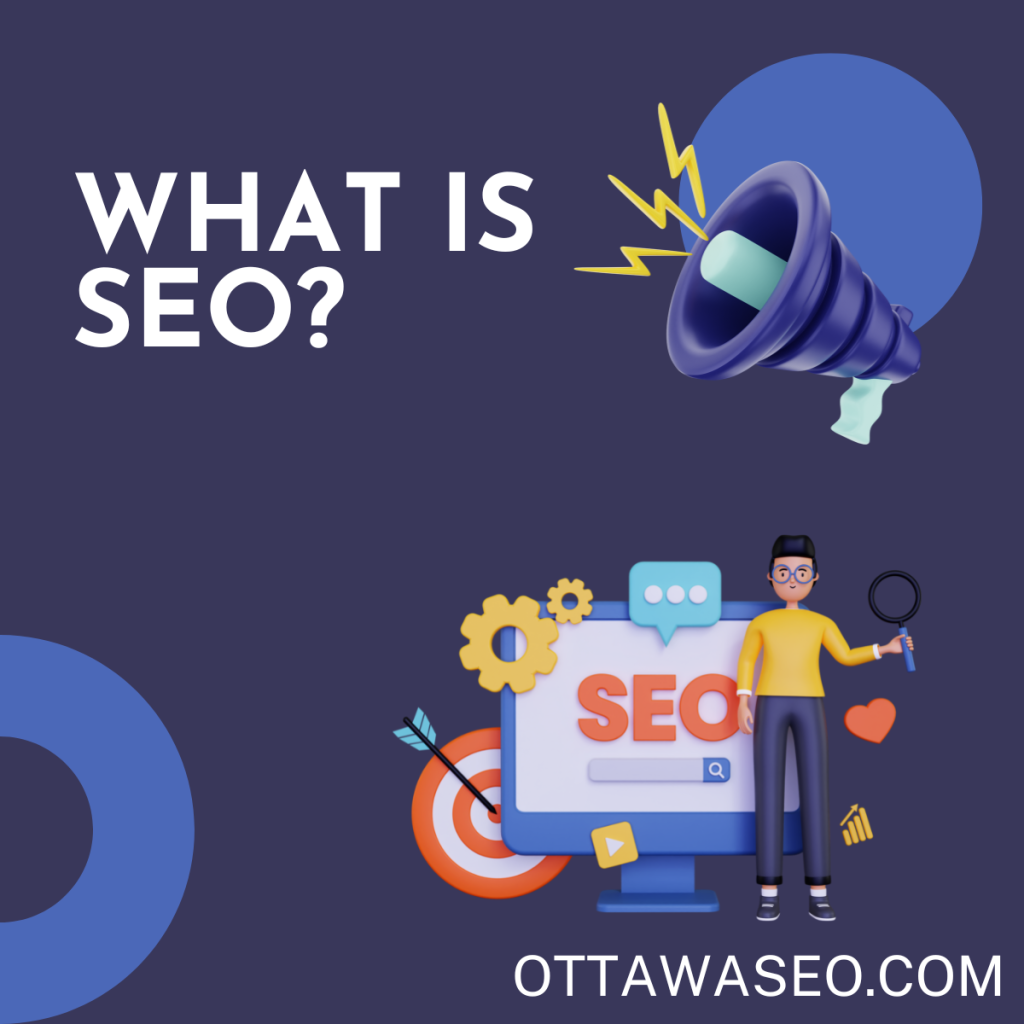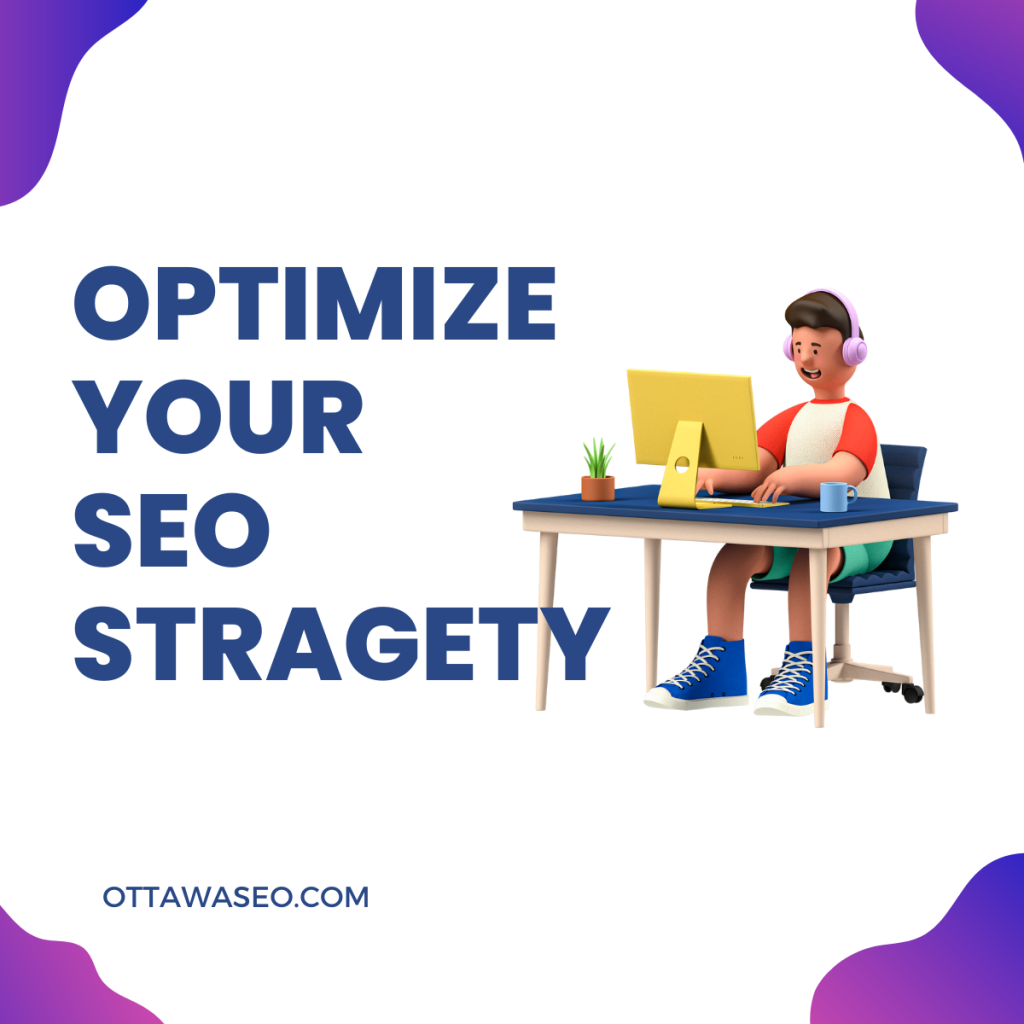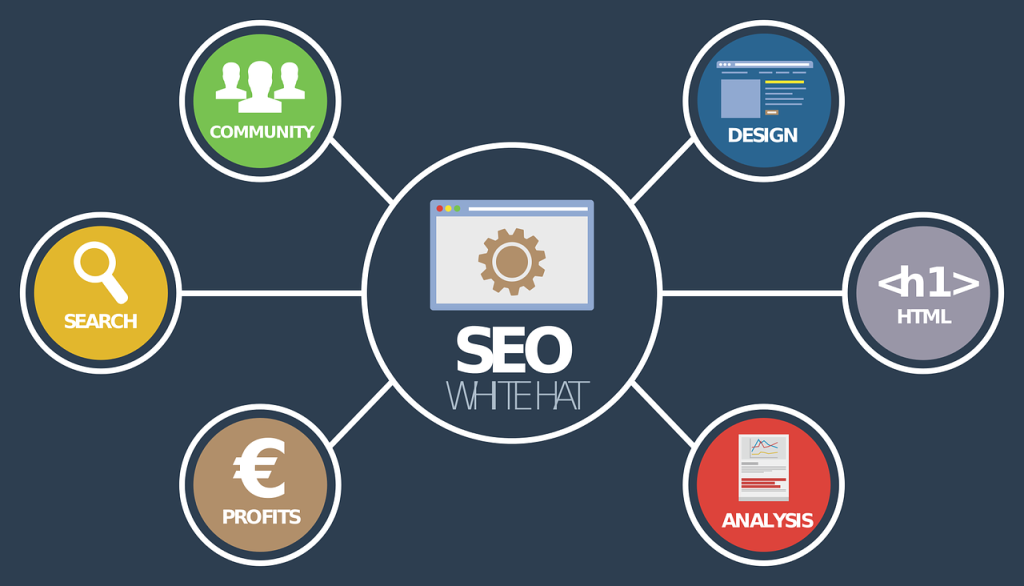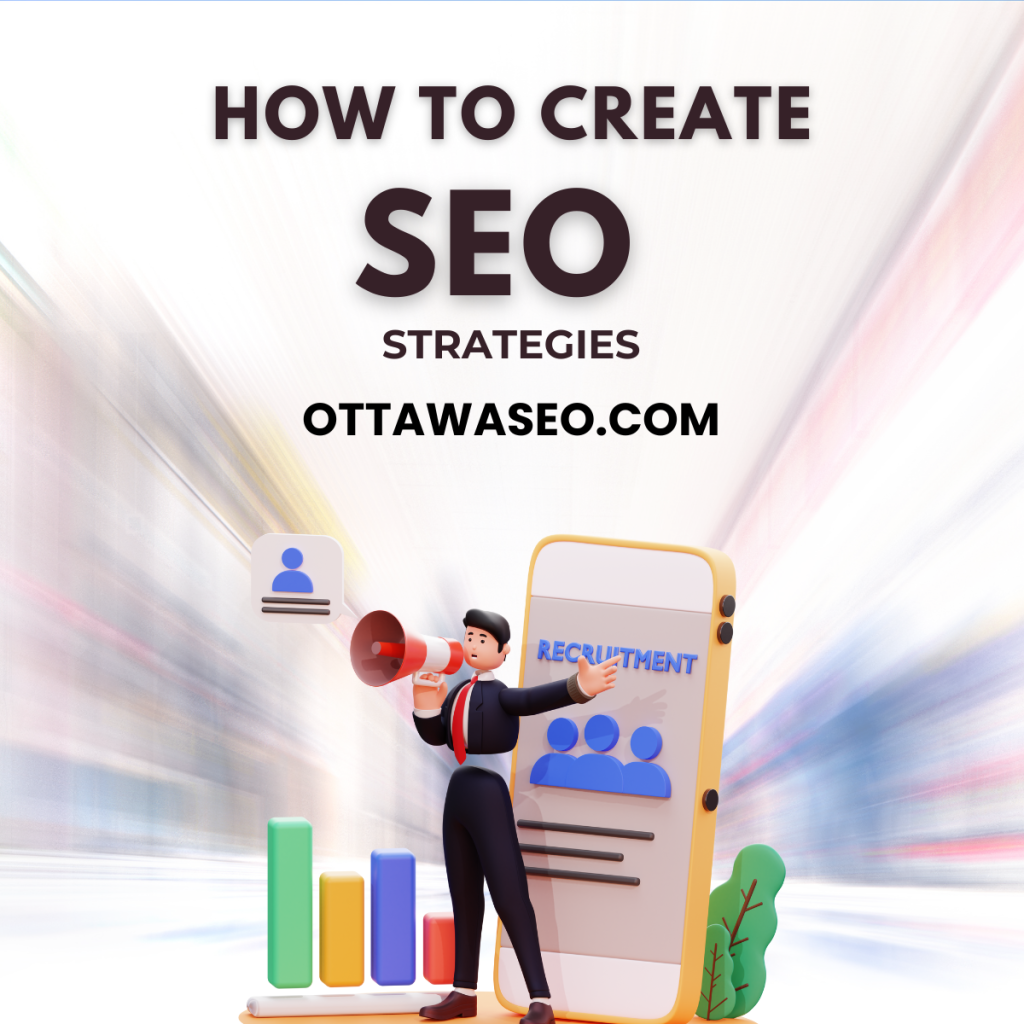
Importance of a Strong SEO Strategy
In the vast and ever-changing world of digital marketing, search engine optimization (SEO) is a crucial element for any website’s success. Without an effective SEO strategy in place, your website could easily get lost in the sea of online competition. In today’s blog post, we’ll explore why having a strong SEO strategy is imperative for boosting your site’s visibility and driving traffic to your business. So buckle up and get ready to discover how you can take your website to new heights with the power of SEO!
What is SEO?

As the world of online marketing has evolved, so has the practice of search engine optimization (SEO). Once considered a dark art practiced only by webmasters and nerds, SEO is now an essential component of any good online marketing strategy.
But what exactly is SEO? And why is it so important? Here’s a quick primer:
SEO is short for “search engine optimization.” It’s the process of optimizing your website to rank higher in search engine results pages (SERPs), with the goal of driving more traffic to your site.
There are two main types of SEO: on-page SEO and off-page SEO. On-page SEO refers to all the measures you can take to make your website more visible and attractive to search engines, while off-page SEO refers to all the activities you can do outside of your website to promote it.
Why is SEO so important? Because it’s one of the most effective ways to drive traffic to your website. In fact, studies have shown that organic search is responsible for 64% of all website traffic. That’s a pretty big deal!
If you want your business to succeed online, you need to invest in a strong SEO strategy. Otherwise, you’re just leaving money on the table.

Why is SEO Important?
There are many reasons why SEO is important for your website. SEO can help you attract more visitors to your site, and it can also help you rank higher in search engines. This means that more people will see your site when they search for keywords related to your business.
SEO can also help you build trust with potential customers. When potential customers see that you rank high in search engines, they’ll be more likely to trust your site and buy from you.
Finally, SEO can help you improve the user experience on your website. If your website is easy to find and navigate, users will be more likely to stay on your site and continue using it. This can lead to more sales and conversions for your business.
How to Optimize Your Website for SEO

As the internet becomes increasingly saturated with content, it is more important than ever to optimize your website for SEO. By doing so, you ensure that your website will rank higher in search engine results pages (SERPs), making it more likely for potential customers to find you. Not sure how to optimize your website for SEO? Here are some tips:
1. Do your research: Keyword research is essential for on-page optimization. Use a keyword research tool like Google AdWords Keyword Planner or MozKeyword Explorer to find relevant keywords for your business and target them throughout your website content, including in your title tags, meta descriptions, and headings.
2. Make sure your website is mobile-friendly: With more people using smartphones and tablets to access the internet, it’s crucial that your website is optimized for mobile devices. A responsive design or separate mobile site can help ensure that your website loads quickly and correctly on all devices.
3. Use social media: Social media can be a great way to promote your content and engage with potential customers. Post links to your articles or blog posts on social media sites like Facebook, Twitter, and LinkedIn; include hashtags, images, and calls to action; and encourage social sharing by offering exclusive content or discounts only available through social media channels.
4. Invest in link building: Link building helps improve both the quantity and quality of links pointing to your website, which can boost your SERP ranking.

The Benefits of a Strong SEO Strategy
SEO is important for any website that wants to rank well in search engines. A strong SEO strategy can help a website to rank higher in search results, helping to attract more visitors. There are many benefits to having a strong SEO strategy, including:
1. Increased visibility in search engines: A strong SEO strategy can help your website to rank higher in search engine results pages (SERPs), making it more visible to potential visitors.
2. More traffic: Higher rankings in SERPs can lead to increased traffic as more people click through to your website. This can mean more customers or clients, and potentially more sales or conversions.
3. Better brand awareness and recognition: Achieving high rankings for your website’s key pages and keywords can help to increase brand awareness and recognition. This can be valuable for businesses of all sizes, but is especially important for small businesses or those starting out.
4. Improved user experience: A good SEO strategy should focus on improving the user experience of your website. This includes factors such as site speed, mobile-friendliness, and creating informative and engaging content. Improving the user experience can lead to increased traffic and engagement, as well as improved conversion rates.
5. Greater ROI: Investing in a strong SEO strategy can provide a great return on investment (ROI). Once your website ranks well, it can continue to bring in organic traffic without additional investment, meaning you enjoy ongoing benefits from your
How to Create a Strong SEO Strategy

If you want your website to rank high in search engine results pages (SERPs), then you need to have a strong SEO strategy. There are a number of factors that contribute to a strong SEO strategy, and we’ll go over some of the most important ones here.
One of the most important aspects of a strong SEO strategy is keyword research. You need to find the right keywords to target for your website. This can be done through various keyword research tools, such as Google AdWords Keyword Planner and Moz Keyword Explorer. Once you’ve found the right keywords, you need to use them throughout your website, including in your title tags, meta descriptions, header tags, and content.
Another important aspect of a strong SEO strategy is link building. This is the process of getting other websites to link to your website. Linking to high-quality websites will help improve your website’s ranking in SERPs. There are a number of ways to build links, such as guest blogging, directory submissions, and social media outreach.
A third aspect of a strong SEO strategy is on-page optimization. This refers to optimizing your website’s pages for both search engines and users. On-page optimization includes things like using the right keyword density, having well-written and informative content, and having a clean and user-friendly design.
The Different Components of an Effective SEO Strategy
As the world of digital marketing has continued to evolve, the importance of a strong SEO strategy for your website has only grown. An effective SEO strategy can help you to rank higher in search engine results pages (SERPs), driving more traffic to your site and ultimately leading to more sales and conversions.
There are a number of different components that go into an effective SEO strategy, and it is important to understand each one in order to create a holistic and successful campaign. Here are some of the key components of an effective SEO strategy:
1) Keyword Research: In order to target the right keywords, you need to first conduct extensive research. Use tools like Google AdWords Keyword Planner and Google Trends to identify relevant and popular keywords that people are searching for. Once you have a list of targeted keywords, you can start incorporating them into your website content.
2) On-Page Optimization: This refers to all the elements on your website that contribute to your SEO, including things like title tags, meta descriptions, header tags, and image alt text. Each page on your site should be optimized for relevant keywords in order to improve your ranking in SERPs.
3) Off-Page Optimization: This encompasses all the activities you do outside of your website that contribute to your SEO. This includes things like link building and social media engagement. By building high-quality backlinks from other websites and promoting your content on social media, you can signal to
How to Develop a Strong SEO Strategy for Your Website
If you want your website to rank highly in search engine results pages (SERPs), you need to have a strong SEO strategy. Here are some tips for developing a strong SEO strategy:
1. Do your keyword research. Find out which keywords are most relevant to your business and target those keywords in your website content.
2. Optimize your website for the search engines. Make sure that your website is well-structured and coded so that the search engines can easily index it.
3. Build high-quality backlinks to your website. Get other websites to link to yours, especially websites that are relevant to your niche.
4. Promote your website through social media and other online channels. The more people who know about your website, the more likely they are to visit it.
5. Regularly update your website content. Keep your content fresh and up-to-date so that visitors will keep coming back for more.
The Different Types of SEO
There are three primary types of SEO: on-page, off-page, and technical.
On-page SEO refers to the optimization of a website’s content and structure to improve its ranking in search engine results pages (SERPs). This can be accomplished through the use of keywords, meta tags, and other techniques.
Off-page SEO focuses on improving a website’s position in the SERPs by building links from other high-quality websites. This is done through link building, social media engagement, and other activities.
Technical SEO encompasses all of the behind-the-scenes aspects of SEO that ensure a website is accessible and easy to crawl by search engine bots. This includes optimizing the website’s code, structure, and server settings.
Tools to Help You with Your SEO Strategy
If you’re looking to improve your website’s SEO, there are a few tools that can help you. Google’s PageSpeed Insights is a great tool for getting insights into how to improve your website’s speed. The Webmaster Tools Search Console can help you track your website’s search performance and identify any issues. Finally, the Mobile-Friendly Test tool can help you test whether your website is mobile-friendly and make improvements if it isn’t.
The Different Elements of a Strong SEO Strategy
There are many different elements that go into a strong SEO strategy. A well-rounded SEO strategy should include keyword research, on-page optimization, backlinking, and social media engagement.
1. Keyword Research: One of the most important aspects of SEO is choosing the right keywords. Keywords are the terms or phrases that users enter into search engines when they are looking for information. In order to choose the right keywords, you need to understand your audience and what they are likely to search for. Once you have a good list of keywords, you can start incorporating them into your website content.
2. On-Page Optimization: Once you have your keywords selected, it’s time to optimize your website for those keywords. This includes both the content on your website as well as the HTML code that makes up your website. On-page optimization is important because it helps search engines understand what your website is about and how it should be ranked in search results.
3. Backlinking: Backlinks are links from other websites to yours. They act as votes of confidence for your website and can help improve your ranking in search results. In order to get high-quality backlinks, you need to create great content that other websites will want to link to. You can also reach out to other websites and ask them to link to your content.
4. Social Media Engagement: Social media is a great way to connect with potential and current customers and
Why You Should Prioritize Your SEO Strategy
If you’re running a website, it’s important to have a strong SEO strategy in place. Here are four reasons why you should prioritize your SEO strategy:
1. SEO Can Drive High-Quality Traffic to Your Website
One of the main benefits of SEO is that it can help you drive high-quality traffic to your website. When you optimize your website for search engines, you’re more likely to show up in the top results for relevant keywords, which means that people who are searching for those keywords are more likely to visit your site.
2. SEO Can Help You Generate More Leads and Sales
Not only can SEO help you drive traffic to your website, but it can also help you generate more leads and sales. If your website is optimized for conversion, then people who visit your site are more likely to take the desired action, whether that’s subscribing to your email list or making a purchase.
3. SEO Can Give You an Edge Over Your Competition
If your competitors aren’t investing in SEO, then you have a chance to get ahead by doing so. By optimizing your website for search engines, you can achieve better visibility than your competition and attract more potential customers.
4. SEO Is an Evergreen Strategy
Unlike paid advertising, which requires ongoing investment to maintain results, SEO is an evergreen strategy that will continue to benefit your website as long as you invest in it. As long as you keep up with best
Conclusion
In conclusion, a strong SEO strategy is essential for any website. It is the foundation of online marketing and will help you drive more organic traffic to your site. By optimizing your content, building backlinks, and taking advantage of other strategies to enhance visibility on search engines, you can increase both brand awareness and potential customers or clients. A well-crafted SEO plan should be at the core of every website’s success story.
